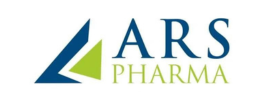Ready to Act
By recognizing the signs of allergic reactions and anaphylaxis, and knowing how to use epinephrine, you can save a life.
En español (In Spanish)Carry epinephrine—everywhere life takes you.
Actor, food allergy parent and FARE Ambassador Tia Mowry understands the importance of preparation for all food allergy families. In FARE's PSA, "Ready to Live," Mowry shows that throwing a fun game-day party starts with being aware of your guests' needs. Check labels at the grocery store for allergens, to be sure everyone can enjoy the meal!
A great host also knows that even with the best planning, allergic reactions can strike. Epinephrine is the only drug that can stop anaphylaxis, a kind of severe allergic reaction that can be deadly. If you have food allergy, talk to your doctor about carrying epinephrine. Even if you don’t have food allergy, it’s still important to know how to administer epinephrine if someone needs help.
By knowing the signs of anaphylaxis and having a plan, we create a community—friends, family, teammates—ready to act for ourselves and for each other.

Watch FARE's PSA, "The Kitchen"
Featuring Super Bowl champion, food allergy dad, and FARE Innovation Ambassador Jason McCourty, and his daughter Kai.
Do you know there is now a needle-free epinephrine option?
In a 2020 survey published in the Annals of Allergy, Asthma, & Immunology, 34% of those who had allergic reactions severe enough to warrant using an epinephrine auto-injector failed to do so.
They cited fear of needles as a one of their chief reasons.
In 2024, the FDA approved a nasal spray epinephrine device, giving people a needle-free option for the first time.
Learn About Epinephrine OptionsAs First Responders Know, “Emergencies Don’t Wait”
FARE’s public service announcement, "Ready to Act," features acclaimed film actress Angela Bassett, who stars as first responder and LAPD patrol sergeant Athena Grant Nash on the television show "9-1-1." First responders know that when it comes to saving a life, anyone can step up and be a hero—if you’re Ready to Act!

Epi First, Epi Fast
Treating an allergic reaction with epinephrine is a lifeline. But too many people with food allergy don’t think they need epinephrine, don’t carry it, or are afraid to administer it.
A 2022 FARE-administered survey showed that only 52% of adult food allergy patients with a history of severe food allergy reaction had ever received a prescription for epinephrine. Of additional concern, only 55% of those who had received a prescription had immediate access to epinephrine—that is, access within five minutes or less. Emergencies don’t wait.
In 2024, the FDA approved a nasal spray epinephrine device, giving people a needle-free option for the first time.
The stakes have never been higher.
Food allergy isn’t a choice, a preference, or a “diet.” Food allergy is a disease of the immune system that can cause a life-threatening allergic reaction called anaphylaxis.
For the over 33 million people in the U.S. who live with food allergy, one bite can change everything, at any time.
The list of lives lost keeps growing—these are just a few of their names.
Remember, food isn’t the enemy. The disease is.
Content Warning: food allergy reactions, death
- In memory of Timothy Howard (22), 5/24/25
- In memory of Dominique Brown (34), 12/5/24
- In memory of Hannah Glass (19), 11/10/24
- In memory of Lily King (18), 6/23/24
- In memory of Hannah Jacobs (13), 2/8/24
- In memory of Orla Baxendale (25), 1/11/24
- In memory of Dr. Kanokporn (Amy) Tangsuan (42), 10/5/23
- In memory of Alison Pickering (23), 5/12/23
- In memory of Matthew Briden (28), 6/30/22
- In memory of Jagger Shaw (14) 5/7/22
- In memory of Reese Langer (13), 5/20/21
- In memory of James Atkinson (23), 7/10/20
- In memory of Logan Lewis (20), 12/5/19
- In memory of Wyatt Polachek (12), 11/30/19
- In memory of Elijah Silvera (3), 11/3/17
Every 10 seconds, a food allergy reaction sends someone to the Emergency Room in the U.S.1
Emergency treatment for anaphylaxis increased by 377% in just one decade.2 More than 40% of children with food allergy have experienced a severe allergic reaction.3
1, 2, 3 — Citations can be viewed on FARE's "Facts and Statistics" page.

We can’t always prevent the unexpected—but we can be ready to act.
Together, our powerful community is more than a diagnosis.
We’re a movement.
Hear from the Community






